Posted on: 27 May 2021
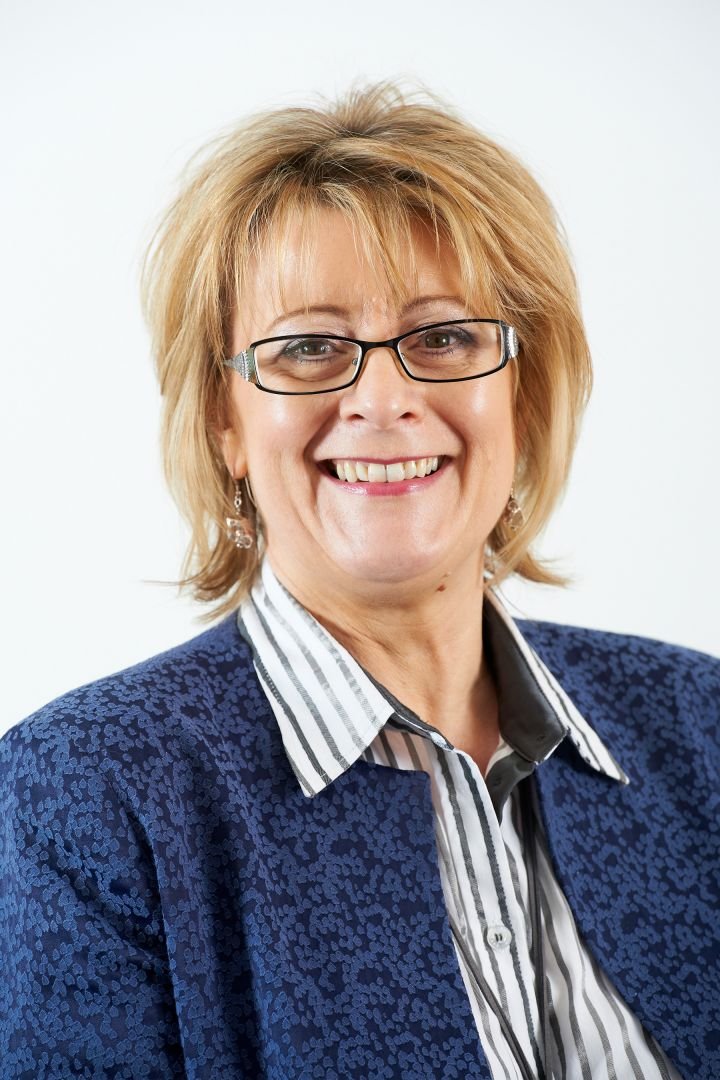 Hello, my name is Helen
Hello, my name is Helen
How quickly my diary (and life) seems to have filled up with discussions about a new three letter acronym - ICP - or integrated care partnership. Until a few months ago these things we are now seeking to define, describe and design were happening anyway in some shape or form. Usually because local partnerships tend to be the best way to achieve the best outcomes for people. For some, these partnerships have been strengthened as a result of the pandemic but for everyone in West Yorkshire we are definitely not starting from scratch.
Bradford district and Craven, where I am based, started a decade ago in any formal sense. We recently created an ‘Act as One’ approach and set out plans on how we would transform our local system.
To do this effectively required us to look at how we did our core business as a health and care system. We quickly reached the point that what ‘Act as One’ is about is ‘how we work round here’ and by doing so how we could further improve people’s lives better than any of us could do alone.
This wasn’t just happening in our area, it was taking place in other West Yorkshire places, namely Calderdale, Kirklees, Leeds, and Wakefield. From innovative service-based alliances that challenged the traditional commissioner/provider approach, such as End of Life Care in Kirklees, the Mental Health Alliance in Wakefield; community focused transformation such as the Calderdale Cares Programme; to One Leeds Workforce
Our wider Partnership leadership and development programme journey began in 2018 - supporting people and places to develop their partnerships, sharing good practice, development interventions, with local peer reviews. Working with the Commissioning Futures programme, which includes a strong focus on population planning and tackling health inequalities, and a cross sector leaders group we began to describe the effective components of what makes for a good placed based partnership. Simply put, a shared vision, effective behaviours with capability and capacity to deliver.
So, what’s changed…we must have these partnerships in place now……they are fundamental to our integrated care system (ICS) operating model.
The main difference is before we chose what we collaborated on. Now, with the White Paper proposals, particularly the changes to commissioning, the scope of these partnerships is being, in part, defined for us. The proposals are intended to support health and care partnerships like ours to continue to deliver quality care to communities, in a way that is less bureaucratic, more accountable, and more joined up. If the legislation passes through Parliament during the summer, our ICS will become a statutory organisation from April 2022.
What hasn’t changed is what makes for an effective partnership. There will be many conversations about accountability, governance, decision making, delegation etc but we want more than that if we are to do the best for local people and wider West Yorkshire population. We seek depth and meaning in our relationships and behaviours that reflect a changing operating model.
In 2015, Nicholas Timmins wrote a Kings Fund publication ‘The practice of system leadership: Being comfortable with chaos’ and in it he reflected the key themes for success:
- Start with a coalition of the willing, build an evidence base, and build outwards; it is vital to engage clinicians in understanding the need for change and to lead efforts to achieve that change
- Involve people and communities because they have an invaluable role to play in helping to identify which services need to be redesigned
- Strike the right balance between constancy of purpose and flexibility by facilitating conversations about what needs to change and how; being flexible about how that might be achieved; and ensuring the momentum is there to deliver change despite the inevitable opposition
- Pursue stability of leadership, something that has proved difficult in a context of frequent reorganisation of the provider and commissioning landscape
The last point is particularly pertinent to us now and is the very reason why in West Yorkshire we start from the premise of building on what we have. Both our ICS and ICP development are all about effective behaviours and relationships. They are co-created with those who work together now and will continue to work together after 1 April 2022. It is based on Myron’s Maxims. The principles of ‘people own what they create’, and the ‘process you use to get to the future is the future you get’ has enabled leadership activity to be distributed, enabling a culture of collaboration to develop and enact across the breadth of partnership forums, networks and programmes. As we progress with our transition and transformational ambition over the next 12 months and beyond, the development of a leadership and behavioural framework as part of local ICPs will enable us to embed these philosophies deeper within our organisations and teams that make up our wider integrated care system i.e. the Partnership.
We are not starting from scratch – but there is much more to do. We are continuing our conversations with open and honest dialogue about the types of challenges we face and what kind of leadership will be needed for the future. Using an appreciative inquiry approach will enable us to focus on strengths and assets in our local ICPs ready for April 2022 and beyond, whilst recognising that each ICP operates in a unique local environment. As we develop, it is essential we consider what works for them, their history, their context, their readiness and willingness to adopt new ways of working and challenge and most importantly what is right for local people's, health, wellbeing and happiness.
Taking a place-based approach highlights the strengths, capacity, and knowledge of all those involved, supported by the wider ICS priority programmes, and agreed memorandum of understanding. You can find out more in this article I wrote for the Health Service Journal, published this week.
 Before I finish this, I want to reflect on demonstrable examples of integrated working at place and the impact this is having on the people we serve. On 20 May Bradford District and Craven held a Recognition Day which marked the end of our month-long Act as One Festival. At the event – hosted by BBC Look North’s Amanda Harper who was joined by our guest speakers; Prerana Issar, Chief People Officer for the NHS and Chris Hopson, Chief Executive for NHS Providers - we heard almost 50 examples of how people and teams across our place are living the values of Act as One and making a difference to people’s lives. You can read more about the nominations we received.
Before I finish this, I want to reflect on demonstrable examples of integrated working at place and the impact this is having on the people we serve. On 20 May Bradford District and Craven held a Recognition Day which marked the end of our month-long Act as One Festival. At the event – hosted by BBC Look North’s Amanda Harper who was joined by our guest speakers; Prerana Issar, Chief People Officer for the NHS and Chris Hopson, Chief Executive for NHS Providers - we heard almost 50 examples of how people and teams across our place are living the values of Act as One and making a difference to people’s lives. You can read more about the nominations we received.
The ICS belongs to all of us wherever you work, whatever your role, you are part of the system and the solution.
Have a good weekend and thank you to all who are working over the bank holiday to keep us safe and well.
Helen
What else has been happening this week?
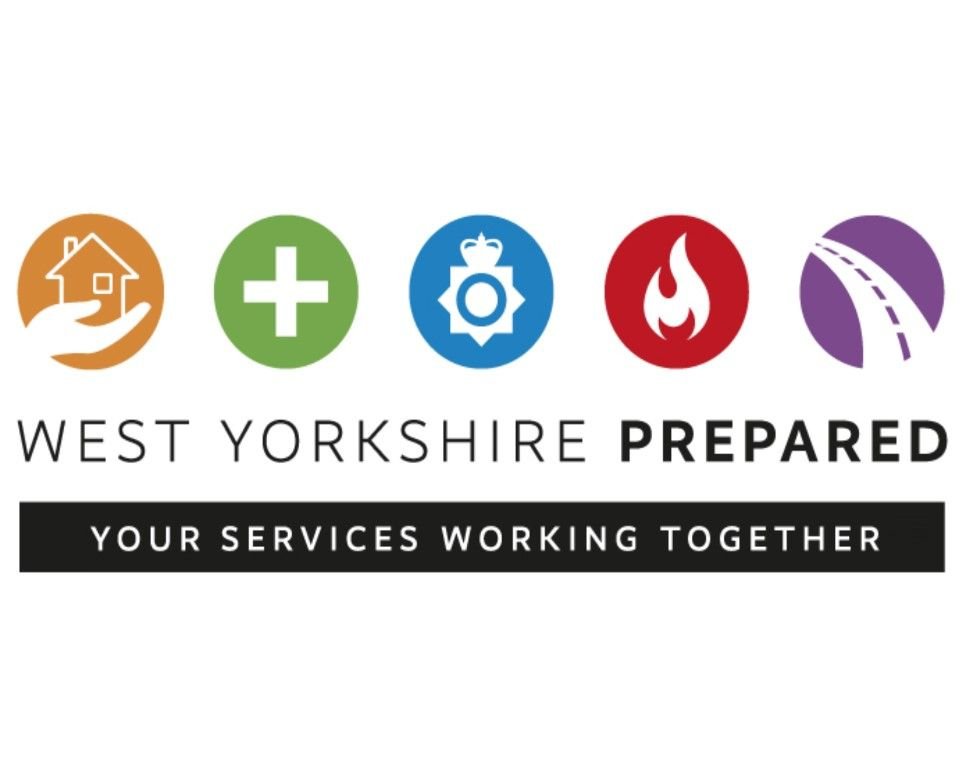 Local Resilience Forum encourages vaccine uptake as new variant is found in West Yorkshire
Local Resilience Forum encourages vaccine uptake as new variant is found in West Yorkshire
West Yorkshire leaders are calling on people in the region not to let their guard down too soon and continue doing all they can to minimise the spread of infection, as lockdown restrictions ease and the new COVID-19 variant is found in West Yorkshire. With the roll out of step 3 of the roadmap last week, West Yorkshire Prepared, the region’s Local Resilience Forum (LRF), has said there is increased concern around the new Indian variant, which has been detected in Kirklees, being more transmissible. Early signs show the vaccine is still effective against this new strain but there are pockets of areas in our region where vaccine uptake is low.
Restoring elective surgery and planned care services
As elective surgery and planned care services are being brought back across West Yorkshire and Harrogate, the Partnership is looking for patient volunteers to join its new Planned Care Citizens’ Panel. Listening to the experiences of people who’ve had treatment delayed during the pandemic will help us communicate better with others in the same position.
We’ve had some expressions of interest but there’s certainly room for more people to join the panel before the closing date on 13 June. Please do keep sharing this opportunity with the public in any way you can. The insight of those with lived experience will be invaluable in supporting communications around restoring planned care services over the coming months and beyond.
To help boost the recruitment campaign a little, we’ve produced this short film featuring Karnesh Patel, a Consultant Ophthalmologist at Calderdale and Huddersfield NHS Foundation Trust. Karnesh explains why we’re establishing this new panel and how people can get involved.
Exciting volunteering opportunity for people with lived experience of homelessness
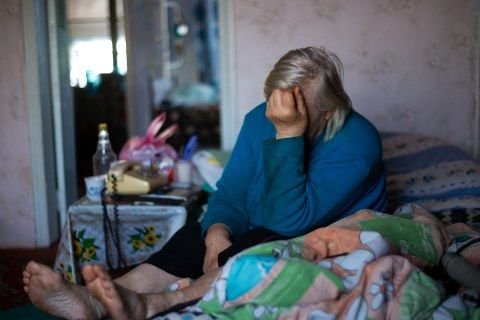 Bevan Healthcare CIC in partnership with Groundswell is launching a new Homeless Health Peer Advocacy Service in Leeds in 2021. Homeless Health Peer Advocacy provides a unique opportunity for people with lived experience of homelessness to train as an independent advocate. Volunteers benefit from:
Bevan Healthcare CIC in partnership with Groundswell is launching a new Homeless Health Peer Advocacy Service in Leeds in 2021. Homeless Health Peer Advocacy provides a unique opportunity for people with lived experience of homelessness to train as an independent advocate. Volunteers benefit from:
- training in a range of skills such as advocacy, boundaries, confidentiality and homeless health
- support to achieve their aspirations to move on from volunteering into employment or training
- clinical supervision and reflective practice
- developing skills and confidence through direct experience of supporting people
Advocates will have a strong focus on supporting people to access and engage with healthcare digitally and remotely and will receive additional training to do this effectively. Recruitment opens in early June 2021. To apply, you’ll need to have lived experience of homelessness. Previous experience of volunteering is preferred but not essential. If you have people within your organisations who you think would benefit from this opportunity, we would really like to hear from you. We can provide additional information, add you to the list for distribution of recruitment materials or attend meetings to tell your teams more about the service. Please get in touch with Sadhana.
People Board
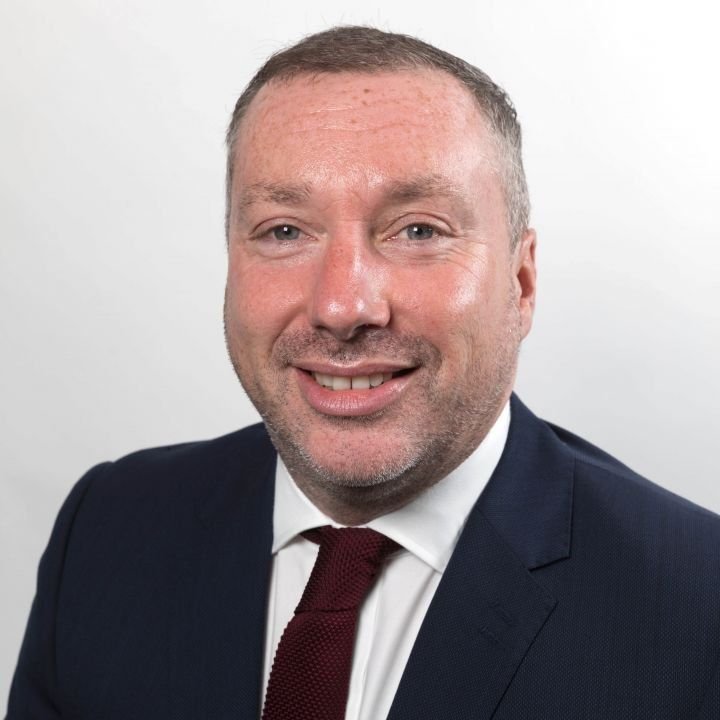 The People Board met last week, chaired by Brendan Brown, our CEO Lead for Workforce. Brendan is also CEO for Airedale NHS Foundation Trust. At the last Board meeting in May, it was agreed to plan some ‘time out’ for the Board to do some focused work on the future of our Partnership – building on the work being done nationally and locally around the White Paper legislation proposals with which we are involved.
The People Board met last week, chaired by Brendan Brown, our CEO Lead for Workforce. Brendan is also CEO for Airedale NHS Foundation Trust. At the last Board meeting in May, it was agreed to plan some ‘time out’ for the Board to do some focused work on the future of our Partnership – building on the work being done nationally and locally around the White Paper legislation proposals with which we are involved.
Board members explored the opportunities and capacity we would need to deliver our ambitions for all colleagues whilst working towards a future ‘one’ workforce. Engagement with colleagues is essential throughout as we work towards a vision for 2030.
Staff Mental Health and Wellbeing Hub
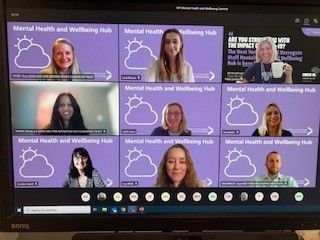 The Staff Mental Health and Wellbeing Hub held a summit event this week for leaders in human resources, organisational development, wellbeing, and other similar roles across the Partnership. The event was attended by 80 people who made important contributions to the development of the project team’s thinking about the Hub’s services and the needs of colleagues.
The Staff Mental Health and Wellbeing Hub held a summit event this week for leaders in human resources, organisational development, wellbeing, and other similar roles across the Partnership. The event was attended by 80 people who made important contributions to the development of the project team’s thinking about the Hub’s services and the needs of colleagues.
Our Partnership CEO lead Rob Webster shared his personal reflections on working throughout the pandemic, supporting colleagues in his own Trust as well as living with someone who needed to shield. A follow-up report will be published shortly.
Children, Young People and Families Programme
The Partnership’s Children, Young People and Families Programme Board met last week. The meeting was chaired by Beate Wagner (Director, Children and Young People’s Services, Wakefield Council) and joint senior responsible officer for the Programme.
The Board received an update on staffing arrangements focusing on the appointment of a data analyst that will be jointly shared between the Children, Young People and Families Programme and the Urgent and Emergency Care Programme.
The Board received an overview of its programme structure and its priority workstream areas with discussions focusing on an overview of priority workstreams and a commitment for adversity, trauma, and resilience to be a ‘golden thread’ across the Programme. Colleagues also received an update and next steps highlighting:
- Our shared ambition of ‘Working together with people with lived experience and colleagues across all sectors, organisations to ensure West Yorkshire and Harrogate is a trauma informed and responsive system by 2030’ and what this means
- Overview of the West Yorkshire Violence Reduction Unit Needs Assessment (2021)
- Success of the Adversity, Trauma and Resilience Knowledge Exchange, which was attended by over 1,500 with 94% being satisfied or very satisfied with the event
- Support for the development of the Partnership’s Trauma Informed and Responsive Strategy 2022-2030, which will be managed through the Adversity, Trauma and Resilience Strategy Board and strategic leadership from the Improving Population Health Programme, Children, Young People and Families Programme and the West Yorkshire Violence Reduction Unit
Updates were also provided from each of the priority workstreams including developing the next phase of the award winning social movement ‘Looking out for our neighbours’ for launch at the end of 2021, which will be co-produced by young people and focus on preventing and tackling loneliness.
An ambition to work with schools across the area at the end of Summer 2021 to embed the Partnership’s anti-racism movement / campaign as part of the recommendations from the Partnership’s review into the impact of COVID-19 on health inequalities report in October 2020, was also discussed.
Partnership Fellowship Programme
 Our HSJ award winning Fellowship Programme is poised to start the second in the three leadership development streams to enable participants from ethnic minorities across the Partnership to develop their careers, as well as system leaders. We have had an overwhelming number of applications from our Local Authorities, VCSE and the NHS and see the Fellowship as an integral programme to help create more inclusive workplaces and deliver a fairer society by increasing ethnic minority representation in order to ensure our priorities are designed with the communities they aim to support.
Our HSJ award winning Fellowship Programme is poised to start the second in the three leadership development streams to enable participants from ethnic minorities across the Partnership to develop their careers, as well as system leaders. We have had an overwhelming number of applications from our Local Authorities, VCSE and the NHS and see the Fellowship as an integral programme to help create more inclusive workplaces and deliver a fairer society by increasing ethnic minority representation in order to ensure our priorities are designed with the communities they aim to support.
Racial equality training
On Monday our Partnership launched a dedicated webpage for the racial inequalities training, as we continue to raise the profile on ongoing racial injustice, inequality and everyday discrimination faced by our colleagues and communities. The objectives of the training are to educate and raise awareness, build ally ship and positive change within our system. Topics covered include white privilege, black history and unconscious bias and racial micro-aggression all of which help employees learn how their individual behaviour is influenced by their own blind spots and stereotypes.
We would encourage everyone to start this educational journey with completing the 10 minute Unconscious Bias and Social Attitudes Questionnaire so staff can understand in more depth their own personal unconscious bias and social attitudes.
The three recorded workshops are free and accessible to all our Partnership workforce and partners - all that we require is a personal pledge. To request the educational workshops and to find out more visit the race equality training page on the Partnership website.
The final piece of training was contributed by our system partner The Leeds Teaching Hospitals Foundation Trust, on Allyship. The model training known as IPPLAUD will give you a roadmap and tools to start those difficult conversations and how to incorporate allyship into your organisations journey to support this change.
Chairs and Leaders Reference Group
This group is made up of council leaders, chairs of clinical commissioning groups and chairs of trusts. Cllr Tim Swift, Leader of Calderdale Council and Cathy Elliott, chair of Bradford District Care NHS Foundation Trust are the co-chairs. The aim of the group is to support the development work we are doing to consider the proposals set out in the White Paper. This is all about supporting health and care partnerships like ours to continue to deliver quality care to communities, in a way that is less bureaucratic, more accountable, and more joined up. If the legislation passes through Parliament our Partnership will become a statutory organisation from April 2022. The proposals support things that we already do together, with local places continuing to manage and provide care locally, the power of an equal partnership that is broader than just the NHS; providers working together to join up care and our collective effort to tackle health inequalities.
Anti-racism movement
Colleagues from across the Partnership met on Tuesday to discuss the next steps on the development of the movement. They received an update on the movement messages and designs for their views. This follows the focus group work of over 60 colleagues from minority ethnic communities. In June, we will be inviting organisations to register for free resources to support the launch in August.
Primary care quality markers
NHS England and Improvement has created Quality Markers which offer guidance and practical ideas that have been developed in partnership with carers, primary care teams and other key stakeholders. Collectively, these provide a framework for improving how general practice can better identify and support carers of all ages and communities.
We know that carers want to be recognised and heard by the system, and not overlooked when they do present at their GP practice, they want information to be shared with them and want to be a part of decision making. They want flexible appointments that allow them to juggle their caring responsibilities, but most importantly, they want to be respected and treated with dignity and compassion, just like any other patient. Identifying and supporting carers is a now a key element of CQC compliance practice inspections developed in partnership with primary care, the CQC and Carers Trust known as the NHS Quality markers.
“Many carers are not known to the system and provide the majority of care without formal support. This is not fair. Although caring can be rewarding, there is substantial evidence that carers have poorer physical and mental health than those who are not caring, and that the more care you provide the more likely you are to have poorer health. We know that the biggest priority for many carers is the health and wellbeing of those they care for, and that they can often neglect their own health and wellbeing needs. The quality markers provide a framework for how all General Practice staff can better identify and support carers from all ages and communities. Early identification and support for our carers will mean they feel appreciated and valued by the health and care system and prevent them reaching crisis point - something we all want to avoid.”
- Dr Steven Cleasby, Clinical Lead for Unpaid Carers, West Yorkshire and Harrogate Health and Care Partnership
'Let’s DiaBEAT this' animation resource
We have a new video resource to share as part of our Let’s DiaBEAT this campaign. In the video we’ve animated Dr Waqas Tahir, Clinical Diabetes Lead for the West Yorkshire and Harrogate Health and Care Partnership and Bradford District and Craven System Programme. The animation will be a useful resource, particularly with GP practices and anyone who works with people at risk of diabetes. It covers who is at risk, how to recognise the signs and what you can do to prevent type 2 diabetes. The animation has subtitles so you can play it with or without the volume turned up in practices or other health and social care settings or as a resource to signpost people to.
Healthy Hearts
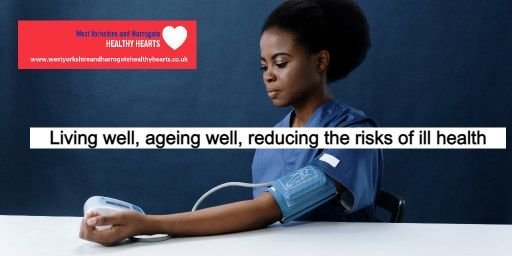 The West Yorkshire and Harrogate Healthy Hearts project team has organised a webinar on Wednesday 16 June for 30min from 1.15pm to 1.45pm to better understand how patients can submit their high blood pressure recordings from home. This is an opportunity to hear how clinical staff and patients can use TPP-SystmOne and the patient app to record blood pressure readings.
The West Yorkshire and Harrogate Healthy Hearts project team has organised a webinar on Wednesday 16 June for 30min from 1.15pm to 1.45pm to better understand how patients can submit their high blood pressure recordings from home. This is an opportunity to hear how clinical staff and patients can use TPP-SystmOne and the patient app to record blood pressure readings.
The session will be of particular interest to primary care colleagues, including primary care network leads and clinical commissioning cardiovascular disease leads. Sign up for the webinar here
The West Yorkshire and Harrogate Healthy Hearts initiative is delivered by Yorkshire and Humber Academic Health Science Network in partnership with West Yorkshire and Harrogate Health and Care Partnership.
As part of the project, they have developed a website including information and resources on cardiovascular disease for both patients and clinicians. Colleagues can download clinical resources that can help support their work with tackling hypertension and high cholesterol.
If you have any questions, please contact the team via Twitter @WYHHealthyHeart or email WYHHealthyHearts

